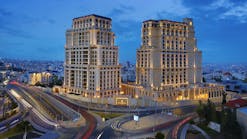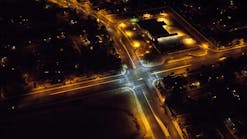Everlight Electronics Co., Ltd., a Taiwan-based LED maker, has filed a patent infringement lawsuit against its Japan-based rival Nichia Corp. in the US District Court for the Eastern District of Michigan.
The lawsuit seeks to prevent Nichia from manufacturing, using, importing, offering for sale, or selling its infringing products in the United States. It also seeks monetary damages.
Everlight’s complaint alleges infringement of US patent no. 6,653,215, which covers LED metallization technology. Everlight is the exclusive US licensee of this patent, which is owned by Emcore Corporation. The action is brought jointly by Everlight and Emcore.
Everlight is also asking the US court to declare that two Nichia patents – numbers 5,998,925 and 7,531,960 – are invalid, unenforceable and improperly issued by the US Patent and Trademark Office. These patents cover the use of certain types of phosphors used in making white-light LEDs.
Everlight describes the legal action is being part of its “continued global effort to enforce its intellectual property rights and to protect its products and its customers from litigation attacks by Nichia.”
Everlight and Nichia have a long history of patent disputes dating back to 2006. In December last year, Everlight filed an unfair competition lawsuit in the Tokyo District Court against Nichia, saying that it had “decided to fight back” against Nichia’s various lawsuits.
Harvatek infringes Nichia's YAG patent, says court
In related news, the District Court in Düsseldorf, Germany has ruled in favor of Nichia in its patent infringement lawsuit against Harvatek Corporation and three German distributors.
Harvatek and the distributors were ruled to have infringed Nichia's patent EP 936 682 (DE 697 02 929), which relates to YAG phosphors combined with GaN-based blue LEDs. The products concerned were four different white LEDs (serial numbers: HT-V116TW, HT-U158TW, HT-P178 TWU-PQPS-DG and HT-T169 TW).
The court rendered judgments – although these are not final and can be appealed by the respective losing party – in favor of Nichia's claims for permanent injunction and damages. In the cases against the distributors, the court furthermore confirmed the recall of the accused products from their commercial customers.




